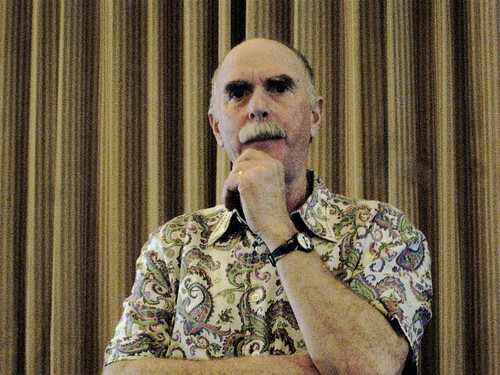A couple of weeks ago, several colleagues and I arranged a retirement dinner for my former Dean, Dr. Michael Tymchak. Michael was the Dean when I was hired at the Faculty of Education back in 1999, and I’ve worked with him in various roles over more than a decade. Michael is one of the most inspiring people I have ever worked and has done powerful work in our province in the areas of teacher education, northern & Indigenous education, and in the development of inclusive, community schooling.
At his retirement, Michael told a story about a recent visit to his family’s homestead. He recalled how as a child he would play and explore in and throughout the many buildings found on the farm – a complete universe through the eyes of youth. Now, with his return, the buildings are completely gone, the land is bare, and the farm is owned by another family. Yet, on this visit Michael dug through the dirt with his hands where he remembered the old landmarks. He tells of finding a perfume bottle, still intact, with a fragrance that triggered still more memories. He also found something he described as a ‘heel protector’, a device much more common at the time. Little things perhaps, but things once important, and at the time of Michael’s visit, enough evidence to trigger important questions, “What endures? What remains?”
I have been thinking about these questions since Michael shared them. I thought I’d share some of my thoughts with you – this is sure to be more of a ramble than a coherent progression of ideas.
For instance, I saw a post recently on Reddit that was simply titled “Life in Three Pictures“. While I have no idea who these two men are, how they may have lived, or the strength of their relationship, the three photos express so well the commonality of our lived experiences, our changing relationships, and our inevitable fate. But I’ll save those topics for another post.
Today, I discovered a photo (source) that made me think about these key questions a bit differently, more in-line with my work in developing & sustaining network interactions/communities.

Here, I saw the metaphor for so many abandoned online communities. This is MySpace and Friendster. And some day, this will be Facebook & Twitter. Online communities face the same inevitabilities as any other form of community.
This isn’t much of an ‘aha’. I assume that anyone who has studied or participated in online communities would quickly come to the same conclusion. Communities are hard to sustain and develop, and all communities have a finite life-span. So why write about this at all?
First, I think that examining the question “What endures?” is incredibly important for educators – and not simply for its philosophical relevance. Educators are designers. We design (learning) experiences and (hopefully) foster the development of communities for our learners. In these roles, what should we hope endures for our students? What will remain of these experiences? And what do we know will not?
And second, for us – those especially invested in social networks – I hope these questions increase our awareness of the depth and quality of our own connections. While I’ve spent the last decade studying and promoting the importance of ‘weak ties‘ for collaboration/cooperation, I would be the first to admit that such ties can be more practical than meaningful, and by definition, tenuous.
Finally, on the practical level – think about your own use and embeddedness in social networks. Say, if Twitter or Facebook were gone (or dramatically different) tomorrow, would the human connections that matter to you be easily rediscovered/re-formed elsewhere? Are your relationships platform-dependent? Is it time to increase the depth and quality of your social network relationships? And if so, how will you do this?
As expressed near the beginning of the post, these are mostly just rambling thoughts. Help me make sense of this. Your thoughts?





